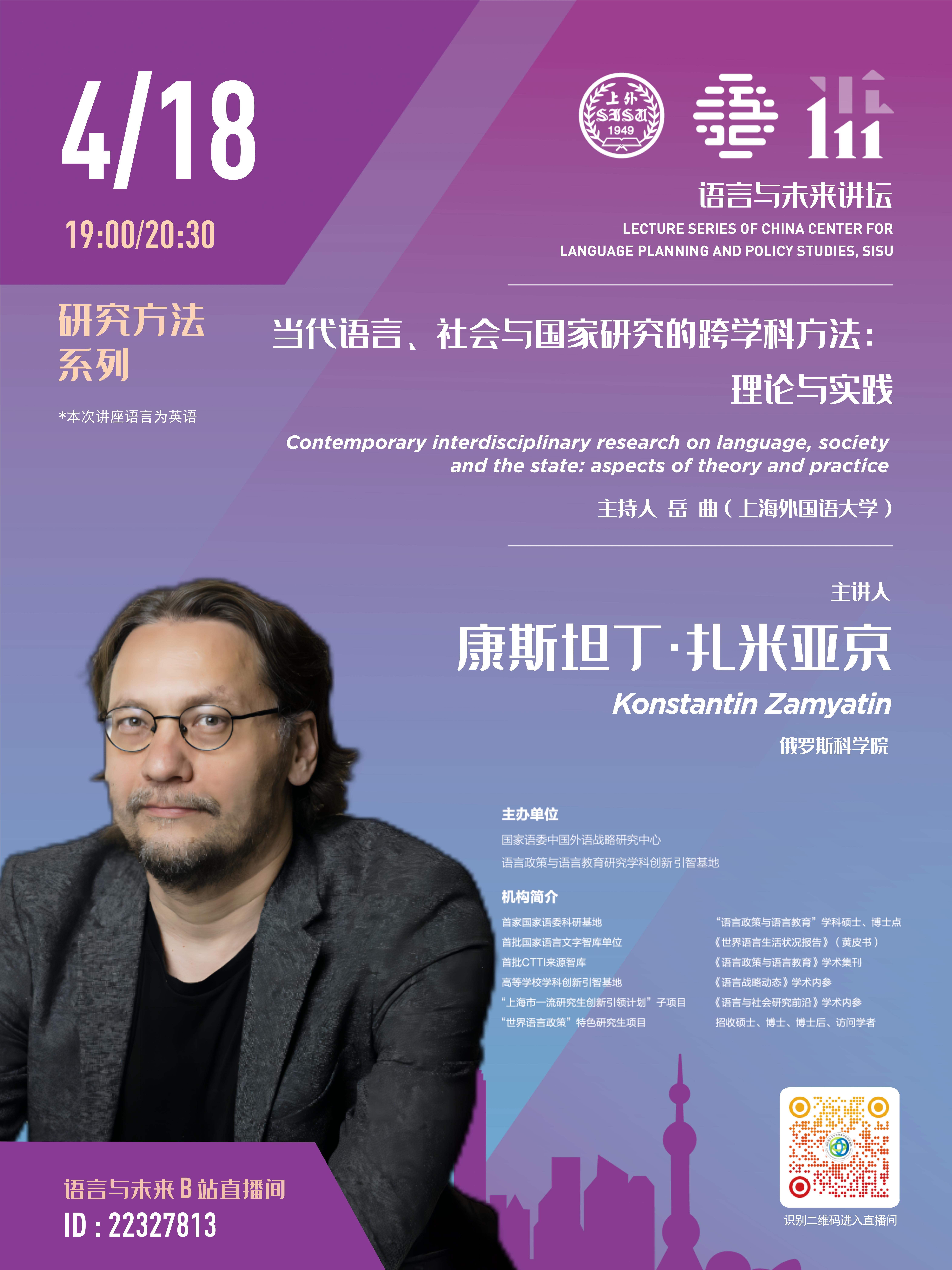
In my talk I would like to discuss the problem of interdisciplinarity in doing research on language, society and the state. Their nexus is studied, among other academic disciplines, within sociolinguistics, sociology of language, political science. Among the interdisciplinary projects in the world science, I will focus my attention on two research programs that nowadays develop rapidly: language policy studies and language endangerment and revitalisation. I will outline theoretical approaches to studying language policy “from above” and “from below”. I will then explore the situation with research and practice of language policy in the Russian case. Due to a number of historical and structural reasons, research on language policy in Russia has not yet completely separated from sociolinguistics and has not become the subject of political science, as initially happened in Western science. This unresolved problem of interdisciplinarity predetermines the limited influence of Russian applied science on the actual practice of language policy and its impact. The limited influence of science, in turn, is expressed in the lack of institutionalization of language policy as a separate direction of state policy and a separate branch of public administration. At the same time, the issues of language policy have again become relevant in connection with significant changes in the life of Russian society and the state in recent years. The need to respond to new challenges launched the processes of language planning, at the core of which was the process of developing the policy documents. Along the promotion of Russian as the state language of the whole country, “preservation of linguistic diversity” has been included as another goal of the state nationality policy. Efforts to preserve languages are undertaken both at the level of state policy “from above” and the practical activities of language activists “from below”. However, despite the official recognition of the problem of language loss and the rise of language activism, it has not yet been possible to achieve any noticeable results in solving the practical problem of preserving languages. I argue that obstacles exist not only at the level of practical activity, but also in applied research. Language policy practitioners implement language policy “from above”, but so far their work remains without solid scientific and conceptual grounds. Due to the underdeveloped program of research on language policy, in Russia today applied scientific work is carried out mainly by linguists as part of language revitalization, which turns out to be unable to offer adequate solutions in a country with a state-centered political culture. In practice, revitalization and documentation efforts replace language maintenance efforts. Thus, due to the situation when applied science has not yet developed high-quality expertise in the socio-political sphere of language use, language policy and language revitalization as a practical activity remain ineffective.
获取更多与本讲座相关的详细信息,敬请关注中国外语战略研究中心公众号“语言与未来”(ID: SISU_CCLPPS)的微信推送。
Konstantin Zamyatin
Konstantin Zamyatin is senior research fellow at the Institute of Linguistics of the Russian Academy of Sciences. He defended in 2014 his PhD dissertation from the University of Helsinki and obtained in 2019 the title of docent from the University of Turku, Finland. He spent the last decade at the schools for advanced studies of some leading British and Swiss universities, including Oxford University, University of London and Durham University as well as Basel University. Konstantin’s current interests include ethnic politics and language politics in the Russian Federation and some other post-communist countries. He goes annually for fieldwork to ethnic regions of Russia and taught several MA and BA study courses, most recently at the Higher School of Economics, Moscow, Russian Federation. His expert work includes assignments commissioned, inter alia, by UN Permanent forum on Indigenous Issues, Ministry of Culture of Estonia, Finnish Institute of International Affairs and others.
新闻报道

